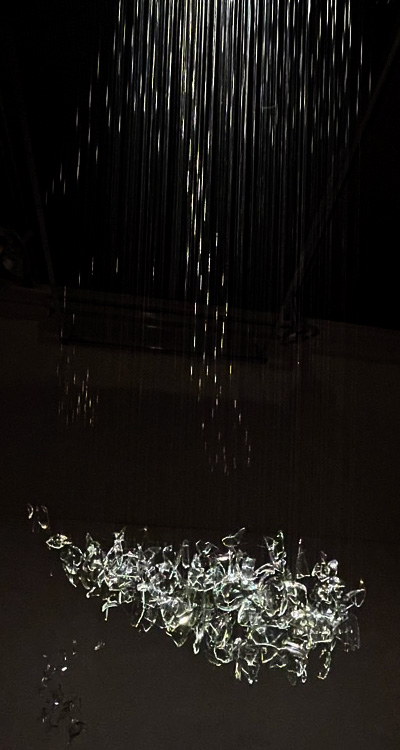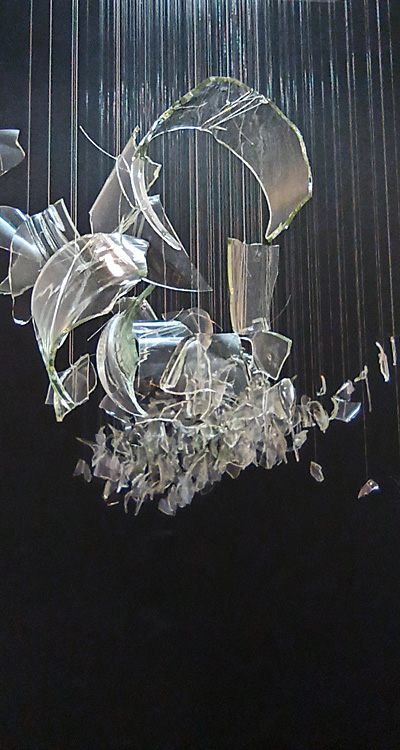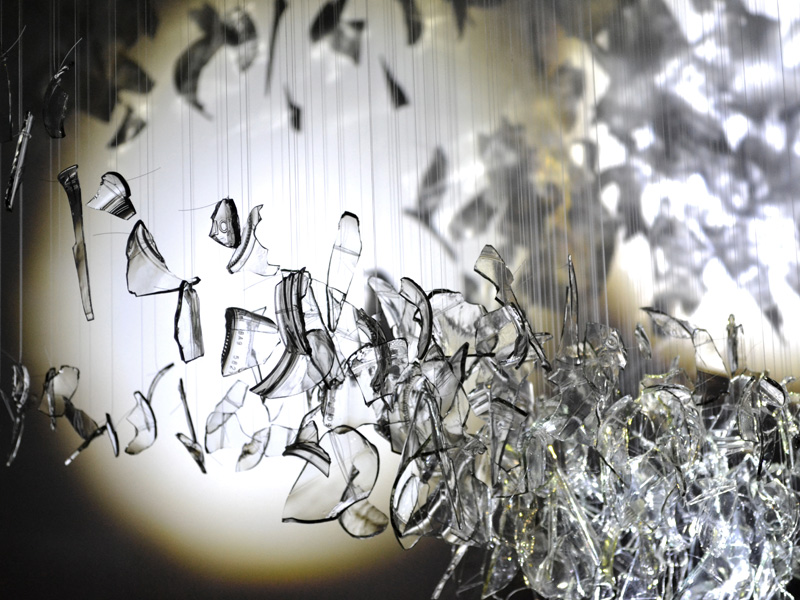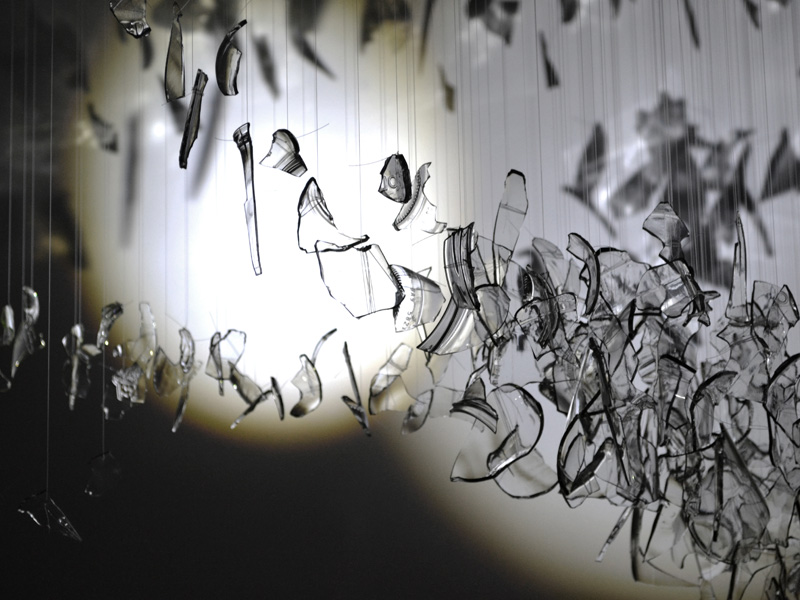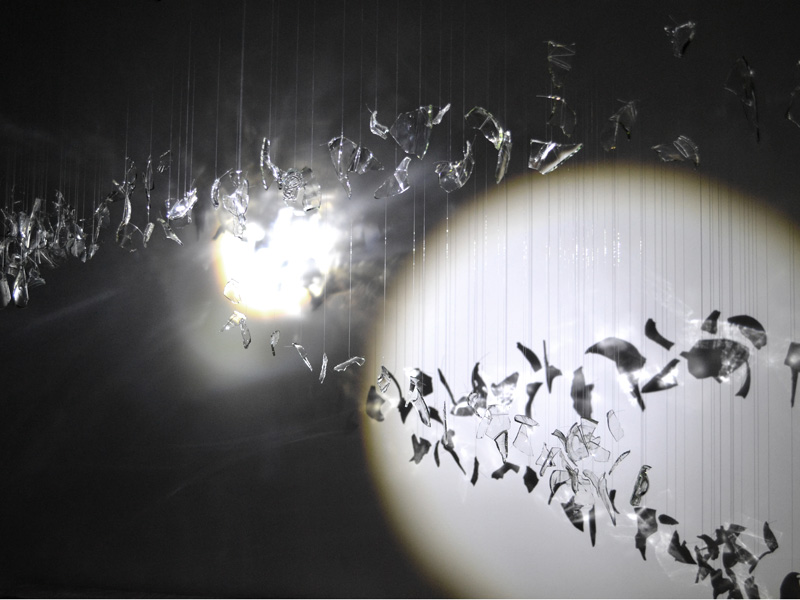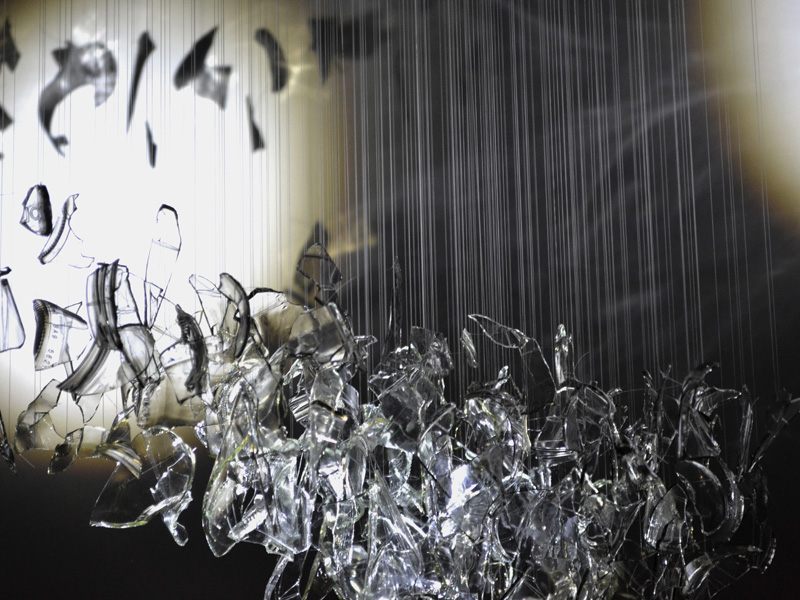LIGHT MATTER MIND I
fainómenon / φαινόμενον : beyond the notion of entities (ħ)
immersive light-matter installation, 2022
inspired by the Agential Realism of Karen Barad
-quantum physicist, feminist, philosopher-
presented in the context of "Ortstermin 22" by Galerie Nord, Berlin
with financial support of NEUSTART KULTUR, Stiftung Kunstfonds


„Phenomena are not located in space and time; rather, phenomena are material entanglements - enfolded and threaded through the spacetimemattering of the universe."
"Space and time are phenomenal, that is, they are intra-actively produced in the making of phenomena; neither space nor time exists as a determinate given outside of phenomena."
"In particular, empirical claims do not refer to individually existing determinate entities, but to phenomena-in-their-becoming, where becoming is not tied to a temporality of futurity but rather a radically open relatingness of the world worlding itself.“
Is this the first step towards a transformation of the structure of our thinking, as Heisenberg postulated at the dawn of quantum mechanics?
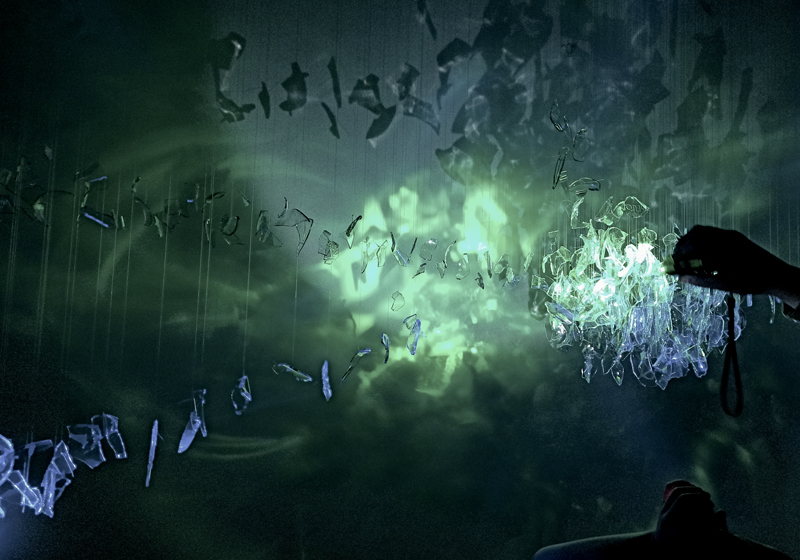
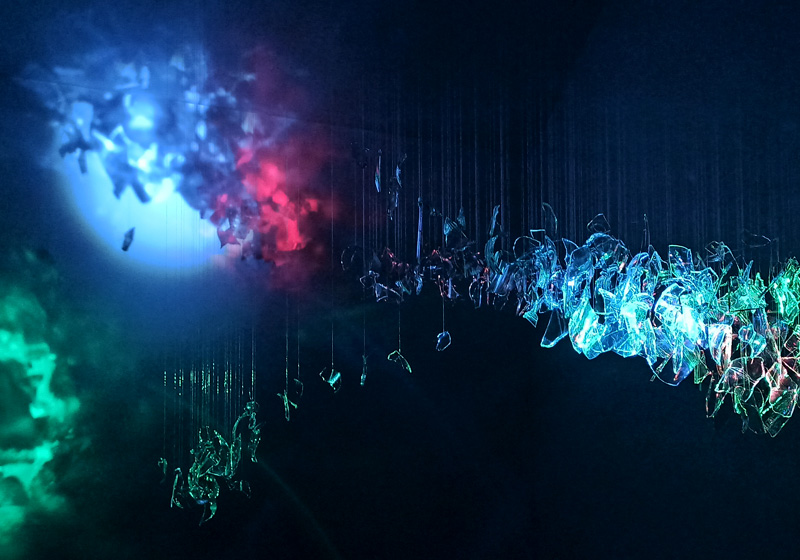
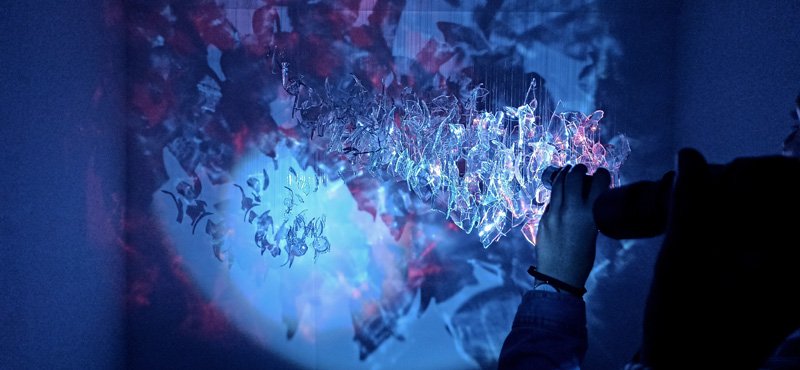
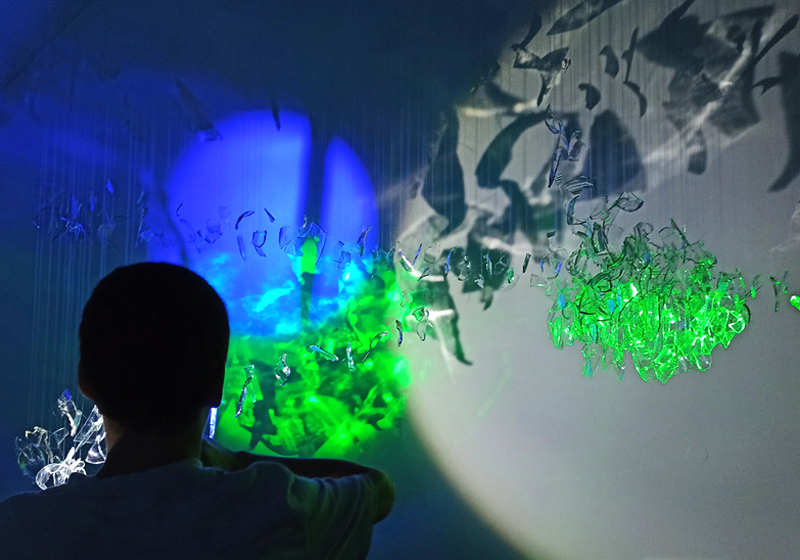
Karen Barad's highly challenging performative approach to reality and her complex interpretation of phenomena finds resonance in the specific sculptural setting of φαινόμενον / fainómenon. At first glance the sculpture might appear as a solid structure with a clearly defined shape, but by still observation its fragility, vulnerability and inherent dynamics will be perceived, its liveliness and creational potential unveiled. By the use of flashlights that can be adjusted in focus and colour further dimensions of the sculpture and its properties come into being, and with that a literally limitless range of alteration.
Broken glass, usually associated with harsh qualities like danger and destruction, loss and uselessness, rigour, pain and grief, has been arranged in a particular way that transcends such categories if not categories at all. The conscious creation of glass shards and their mindful handling is a transformative practice that touches and moves the person being involved on a deep psychological level. The emotional remnants of painful life processes are being turned into something precious, into material for playful artistic intra-action. By this they lead to a fruitful field of exploration that is spontaneous, vivid, unpredictable and loaded with potantiality, providing excitement and spaciousness.
The term phenomenon stems from the Greek phainein, „to appear, become visible“ which itself emerged from phôs, „light“. The philosopher Emmanuel Kant saw phenomena as a combination of the impressions we perceive and our own cognitive abilities. He also stated that phenomena are situated in space and time. For Edmund Husserl, the founder of phenomenology, the term describes the lived processual experience of how an object manifests within a consciousness in space.
Barad introduces an entirely different interpretation of the term, which deeply irritates our conditioned understanding concerning the world. As she points out in „Nature's queer performativity“: „According to my agential realist account... empirical claims do not refer to individually existing determinate entities, but to phenomena-in-their-becoming, where becoming is not tied to a temporality of futurity but rather a radically open relatingness of the world worlding itself.“ We cannot rely on clearly defined things or facts in our perception of the world, but have to perceive the lively process of permanent creation and recreation, caused by the world's inherent dynamics. By stating „Space and time are phenomenal, that is, they are intra-actively produced in the making of phenomena; neither space nor time exist as a determinate given outside of phenomena.“ she goes one step further and defines phenomena as the realm of creation of what we understand as the basic coordinates of our worldly orientation: space and time. Everything we perceive is thus being shaped by agential cuts within phenomena, which themselves are not graspable.
